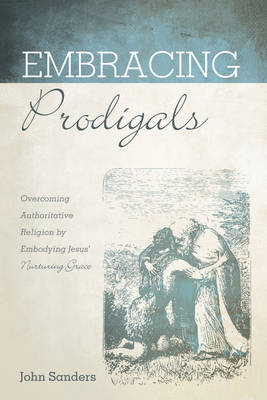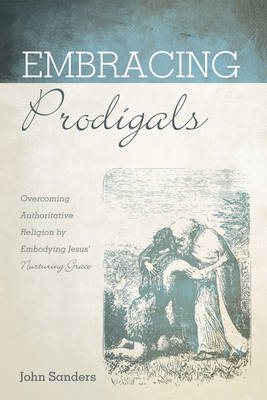
- Afhalen na 1 uur in een winkel met voorraad
- Gratis thuislevering in België vanaf € 30
- Ruim aanbod met 7 miljoen producten
- Afhalen na 1 uur in een winkel met voorraad
- Gratis thuislevering in België vanaf € 30
- Ruim aanbod met 7 miljoen producten
Zoeken
Embracing Prodigals
Overcoming Authoritative Religion by Embodying Jesus' Nurturing Grace
John Sanders
Hardcover | Engels
€ 62,45
+ 124 punten
Uitvoering
Omschrijving
Do you wonder why some people you know hold theological and political views that blow your mind but they find quite reasonable? Today, Christians are at odds over how to understand the Bible, atonement, and salvation of non-Christians. They are also polarized over issues such as same-gender marriage, income inequality, and health care. Two social science models, Nurturant and Authoritative, explain this divide. Values are at the heart of our disagreements. Nurturants prize empathy and cooperation while Authoritatives cherish obedience to law and order. Each group has distinct core values and these lead them to embrace different theological, moral, and political views. This book explains the divide and makes the case that Jesus embodied the Nurturant way of life. He modeled empathy, grace, forgiveness, and care for those beyond his own tribe. The Nurturant and Authoritative approaches have competed for thousands of years but contemporary research shows that the Nurturant way of life produces better mental and spiritual health as well as superior communities in which to live.
Specificaties
Betrokkenen
- Auteur(s):
- Uitgeverij:
Inhoud
- Aantal bladzijden:
- 154
- Taal:
- Engels
Eigenschappen
- Productcode (EAN):
- 9781725264076
- Verschijningsdatum:
- 31/07/2020
- Uitvoering:
- Hardcover
- Formaat:
- Genaaid
- Afmetingen:
- 152 mm x 229 mm
- Gewicht:
- 399 g

Alleen bij Standaard Boekhandel
+ 124 punten op je klantenkaart van Standaard Boekhandel
Beoordelingen
We publiceren alleen reviews die voldoen aan de voorwaarden voor reviews. Bekijk onze voorwaarden voor reviews.











